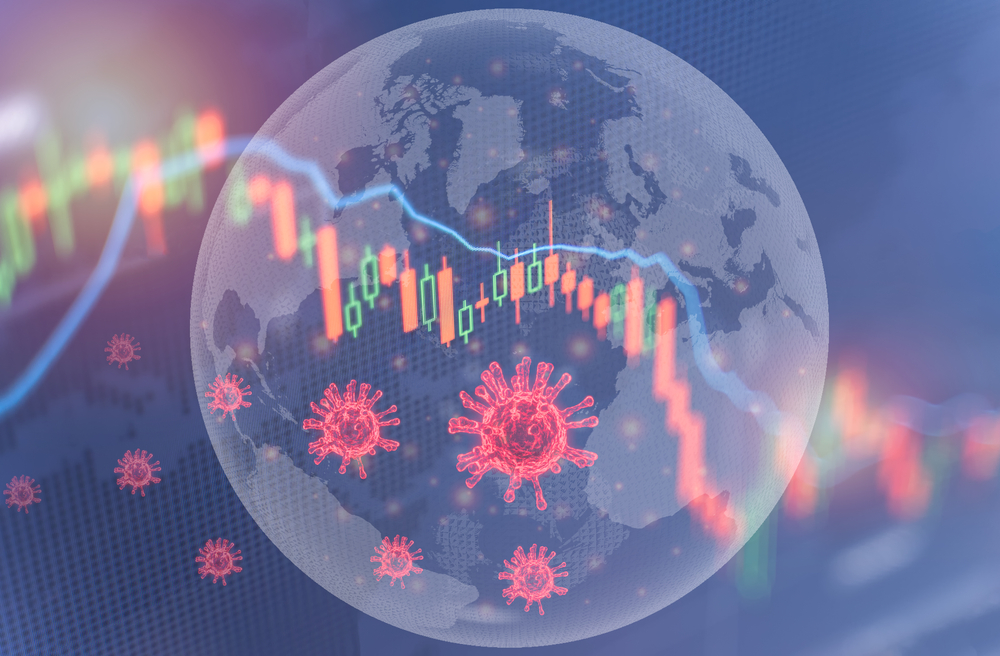Business
JPMorgan Predicts ‘Bad Recession’; Former Fed Chair Sees ‘Shocking’ Downturn

Jamie Dimon, the head of JPMorgan, says he expects the coronavirus pandemic to include a “bad recession” that could put the country into a situation similar to the 2008 financial crisis.
“We don’t know exactly what the future will hold,” Dimon started. “But at a minimum, we assume that it will include a bad recession combined with some kind of financial stress similar to the global financial crisis of 2008,” he added. “Our bank cannot be immune to the effects of this kind of stress.”
Dimon made the comments in the company’s annual shareholder letter.
The letter went on to say that while the bank came into the crisis well funded, the pandemic continues to progress in “dramatically different” ways compared to anything predicted by the Federal Reserve’s stress test for banks.
The Pandemic and the Economy
Perhaps attempting to ease the shareholders into bad news, Dimon stated that JPMorgan’s earnings “will be down meaningfully in 2020” due to the pandemic. He also warned that in an “extremely adverse” downturn in the U.S. economy, the bank would probably consider suspending its dividend in an effort to preserve capital.
Interestingly, Dimon says regulations placed after the 2008 financial crisis could hinder the bank’s ability to help in future crises.
“As we get closer to the extremely adverse scenario, current regulatory constraints will limit additional actions we can take to help clients,” Dimon said, “in spite of the extraordinary amount of capital and liquidity we could deploy.”
Others at Dimon’s bank are sounding the alarm bells as well.
Mislav Matejka, head of global equity strategy at JPMorgan, warned investors yesterday of a very high likelihood that we experience “a vicious spiral, which is typical of a recession, between weak final demand, weaker labor markets, falling profits, weak credits markets and low oil prices.”
JPMorgan economists are expecting “only a gradual bottoming out in activity” because of this. They predict it to be like the ones that took place after the Great Financial Crisis. These economists also believe that it's “not a V-shaped one that we see, for example, after natural disasters.”
Recession and Prolonged Recovery
The bank also expects the unemployment rate will climb to 8.5% during the second half of the year. It also predicts that the U.S. GDP will decline by 10%. For comparison, the economy saw a 4% decline during the financial crisis.
“And this is all assuming that the virus is history by June, which might prove significantly optimistic,” Matejka wrote.
“While consensus view still appears to be a quick recovery, recessions tend to linger,” he added. “It took equities on average 18 months to record the final low in the past.”
Echoing JPMorgan’s worries about the potential for a prolonged recovery is former Federal Reserve Chair Janet Yellen.
In a recent CNBC interview, Yellen says the current state of the economy is worse than what the data shows.
She says we are already in an “absolutely shocking” downturn that is not reflected yet in the current data. Additionally, she mentioned that the unemployment rate probably sits closer to 13%.
She also says the economy has contracted “at least 30% and I’ve seen far higher numbers.”
Yellen says she is optimistic the country will experience a “V”-shaped recovery. She, however, acknowledges that the length of time a country remains shut down will dictate the speed of recovery.
“I think a ‘V’ is possible, but I am worried that the outcome will be worse,” she said. “It really depends to my mind on just how much damage is down during the time that the economy is shut down in the way it is now,” Yellen added.
Up Next:















